- World Population Review Newsletter
- Posts
- Want to Live Longer? Look Where Screening Works
Want to Live Longer? Look Where Screening Works
The global leaders in early detection, longevity, and health equity.
Greetings, curious mind of longevity and action!
What if the secret to a longer life isn’t a breakthrough drug—but a routine checkup?
In some countries, preventive healthcare isn’t just policy—it’s power. Screenings catch cancer early. Doctors stop heart disease before it starts. And the results? Longer lives. Lower costs. More healthy years.
This week, we reveal where prevention actually works—and why it could change where you live, invest, or retire.
Let’s dive in.
How 433 Investors Unlocked 400X Return Potential
Institutional investors back startups to unlock outsized returns. Regular investors have to wait. But not anymore. Thanks to regulatory updates, some companies are doing things differently.
Take Revolut. In 2016, 433 regular people invested an average of $2,730. Today? They got a 400X buyout offer from the company, as Revolut’s valuation increased 89,900% in the same timeframe.
Founded by a former Zillow exec, Pacaso’s co-ownership tech reshapes the $1.3T vacation home market. They’ve earned $110M+ in gross profit to date, including 41% YoY growth in 2024 alone. They even reserved the Nasdaq ticker PCSO.
The same institutional investors behind Uber, Venmo, and eBay backed Pacaso. And you can join them. But not for long. Pacaso’s investment opportunity ends September 18.
Paid advertisement for Pacaso’s Regulation A offering. Read the offering circular at invest.pacaso.com. Reserving a ticker symbol is not a guarantee that the company will go public. Listing on the NASDAQ is subject to approvals.
In Japan, health is treated like a national asset—and protected accordingly. Citizens undergo annual health checkups (Ningen Dock) that include everything from liver panels to cancer screenings. Employers often cover the cost, making prevention routine rather than optional.
The payoff? Japan boasts the highest life expectancy in the world (over 84 years) and low cancer mortality rates. Diseases are detected early, long before symptoms appear.
Why it works:
Mandatory annual checkups
Deep-rooted public trust in the medical system
Early detection built into workplace culture
🔍 Fascinating fact: Over 90% of Japanese adults receive full-body health screenings every year—voluntarily.
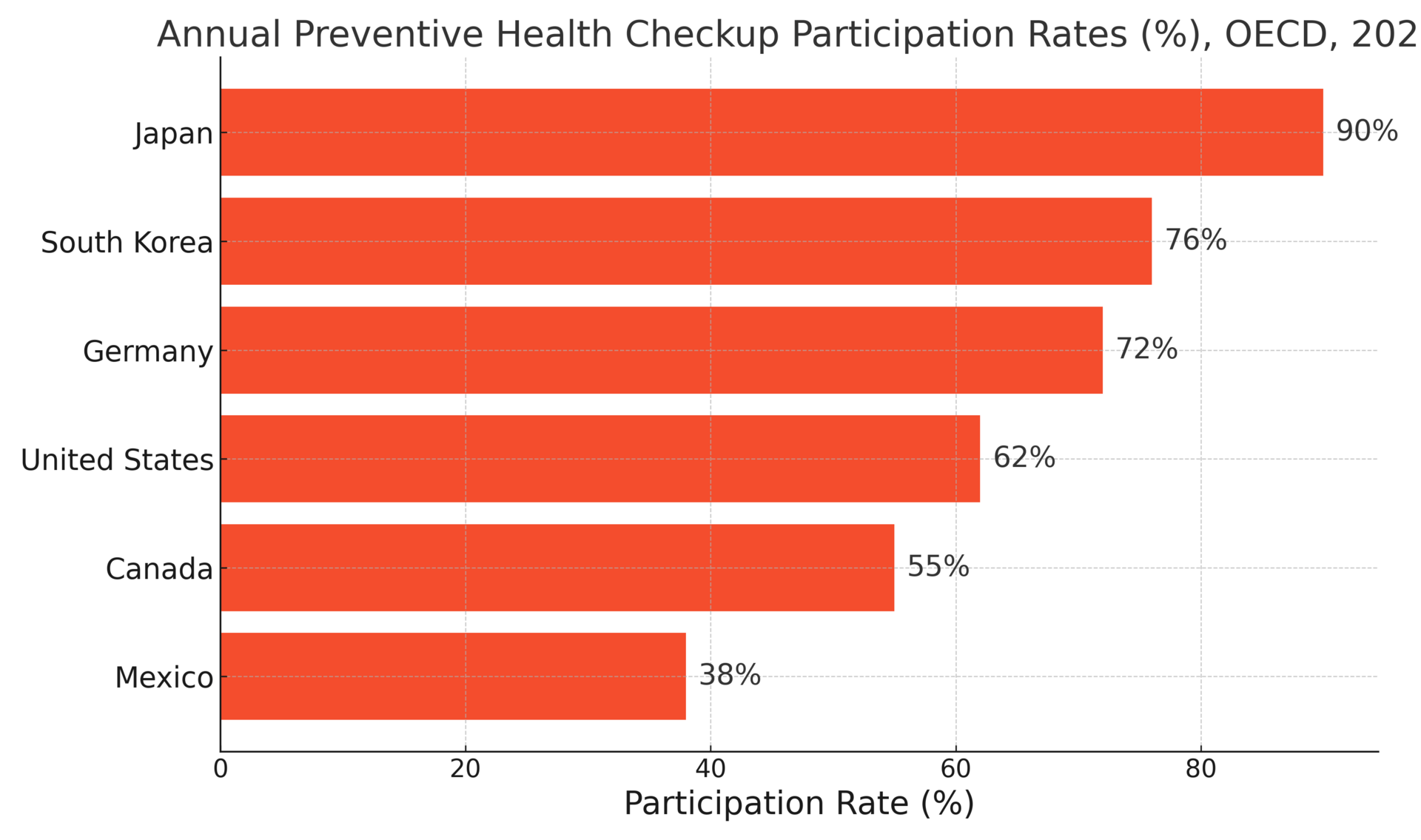
South Korea takes prevention seriously—and digitally. National cancer screenings are standard. AI-driven diagnostics and real-time health data systems have made early-stage detection the norm, not the exception.
Stomach, cervical, and breast cancers are routinely caught at Stage 1, and five-year survival rates are among the highest in the world.
Why it works:
Government-funded screenings
Smart hospitals and integrated digital records
Strong social pressure for proactive health
📊 Did you know? Between 2001 and 2021, South Korea cut stomach cancer mortality by over 50%—largely due to early detection.
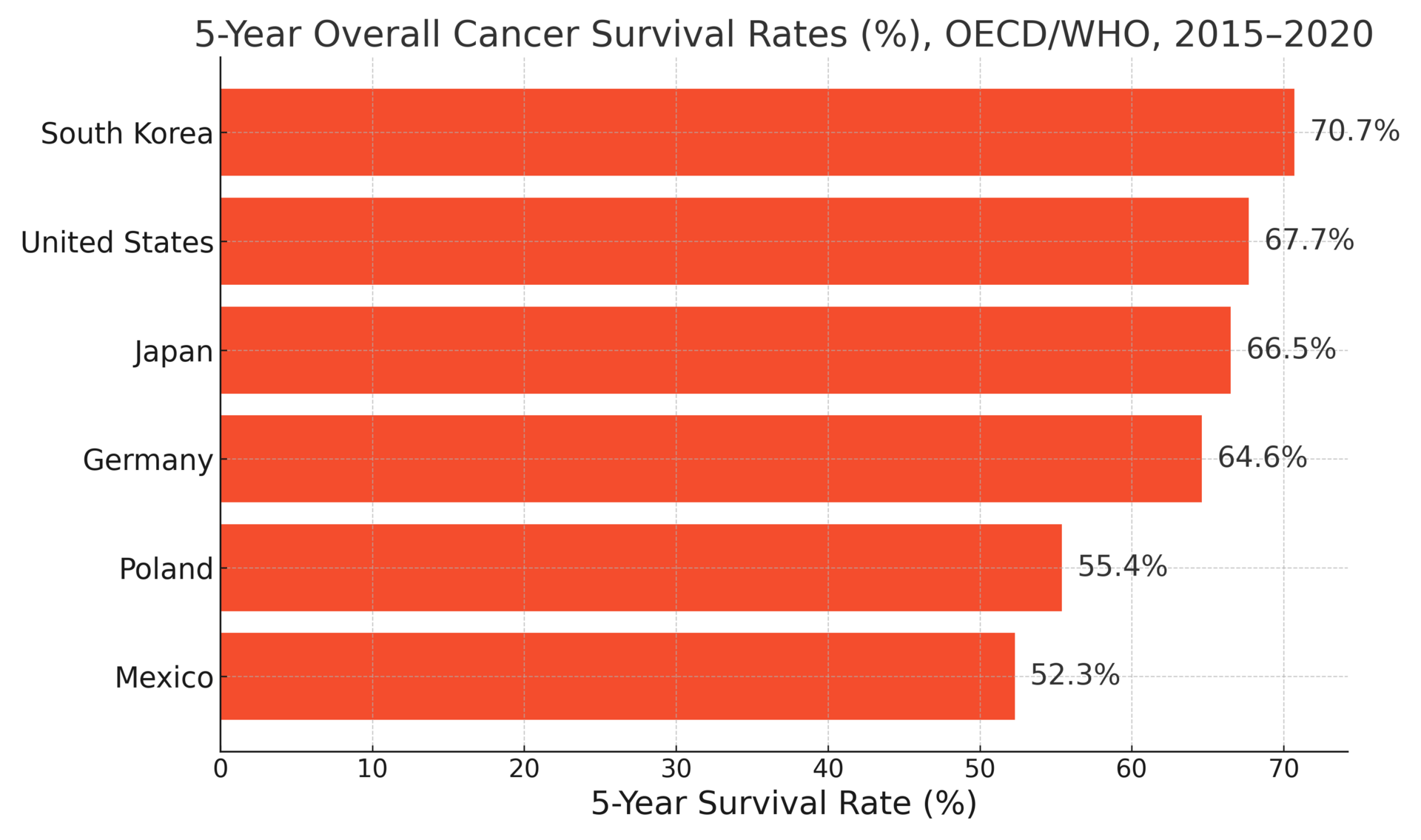
Singapore isn’t just nudging people toward better health—it’s paying them for it. The Healthier SG initiative offers points and perks for checkups, vaccinations, and regular exercise.
Paired with tightly integrated primary care and digital health records, this system is designed to reduce chronic illness before it begins.
Why it works:
Cash incentives for screenings and wellness goals
Emphasis on long-term patient-doctor relationships
Preventive care is linked directly to insurance and cost savings
💡 Unexpected insight: Singapore plans to enroll 80% of residents over 60 in preventive care by 2030.
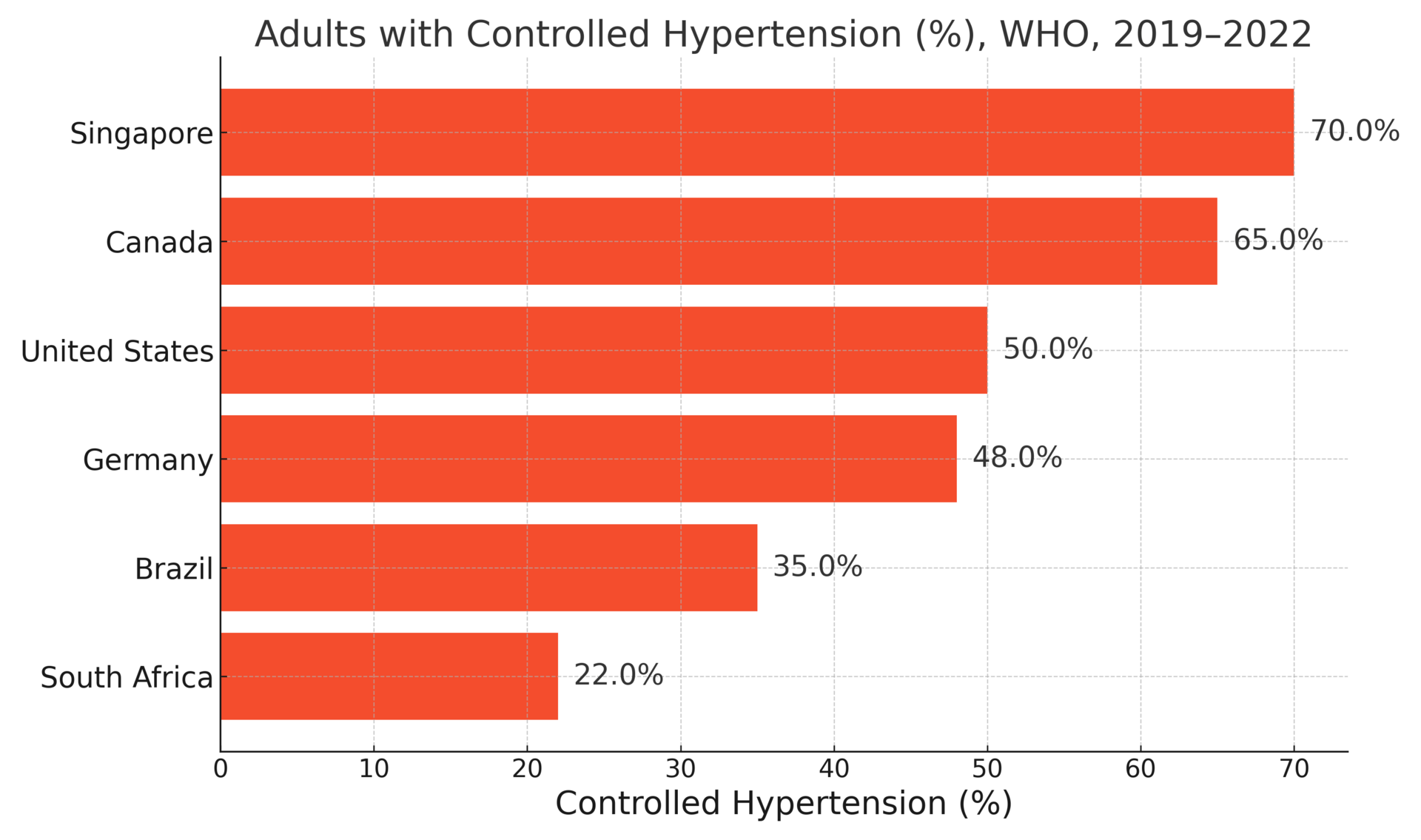
In Sweden, prevention is part of public infrastructure. From mobile mammography vans to school-based screenings, care reaches people where they are—literally.
Digital health records ensure seamless tracking of risk factors across decades, and proactive reminders keep participation rates high.
Why it works:
Regular screening reminders
Preventive care access in both rural and urban areas
Strong public funding and minimal bureaucracy
👁️ Interesting stat: Over 80% of eligible Swedish women attend breast cancer screenings—compared to just 65% in the U.S.
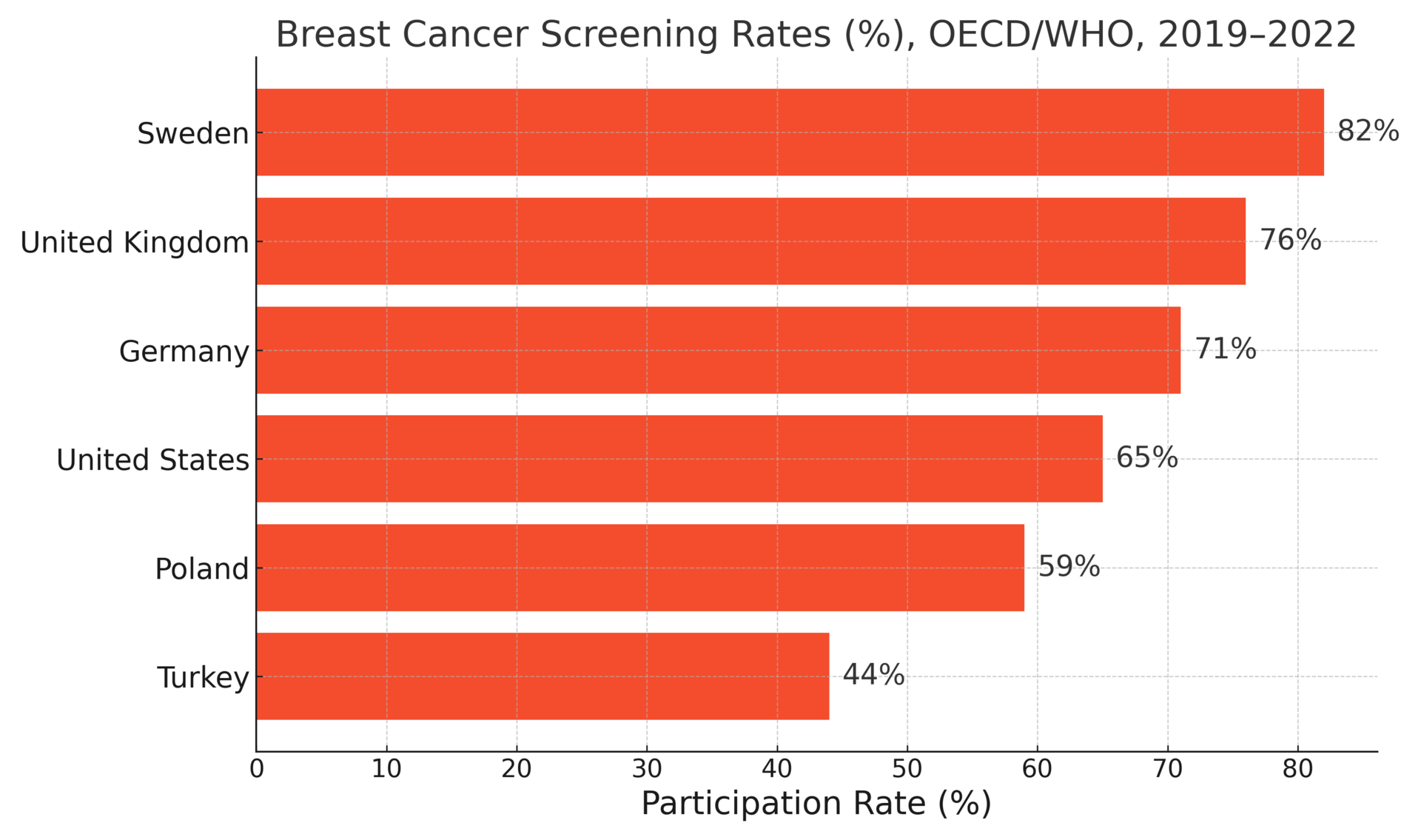
In Germany, preventive checkups are covered by law. At age 35, every insured adult is entitled to a comprehensive cardiovascular and metabolic screening. It’s part of a system designed to stop chronic diseases early.
Doctors also act as long-term wellness advisors, tracking trends and catching anomalies before they escalate.
Why it works:
Screenings mandated by public insurance
High continuity of care with general practitioners
Early risk identification and intervention
📅 Curious detail: Germans visit the doctor about 9 times per year, more than double the U.S. average—largely for routine checkups.
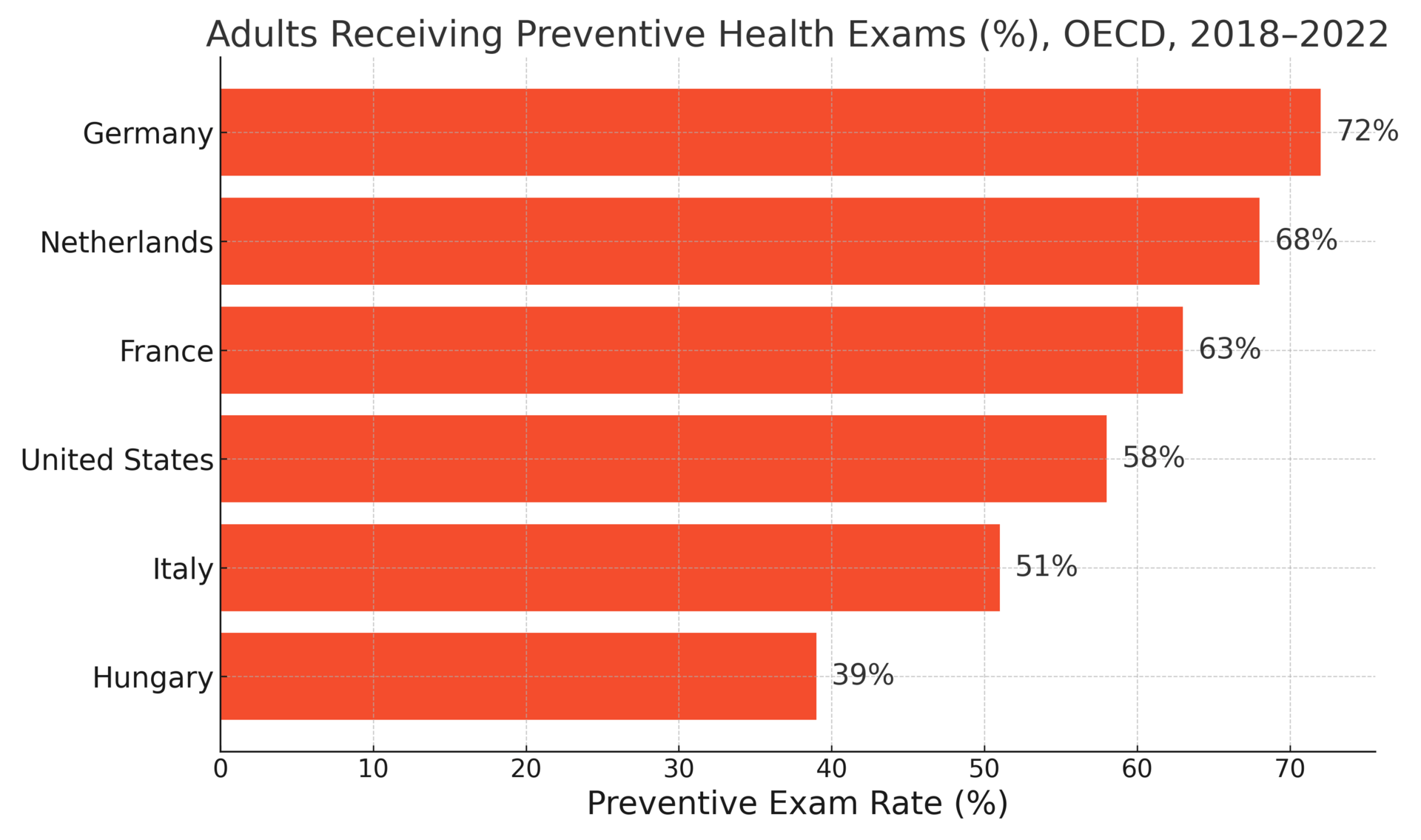
Canada provides free preventive care under its universal healthcare system. But participation is mixed—screening rates vary significantly by province, and access in rural or Indigenous communities remains a challenge.
Still, innovations like self-administered HPV tests and mobile screening units are helping close the gaps.
Why it works (or doesn’t):
No cost barriers to preventive care
Innovative self-screening solutions
Disparities in access and follow-up care
🏥 Surprising stat: Just 65% of Canadians are up to date on colon cancer screenings—despite universal access.
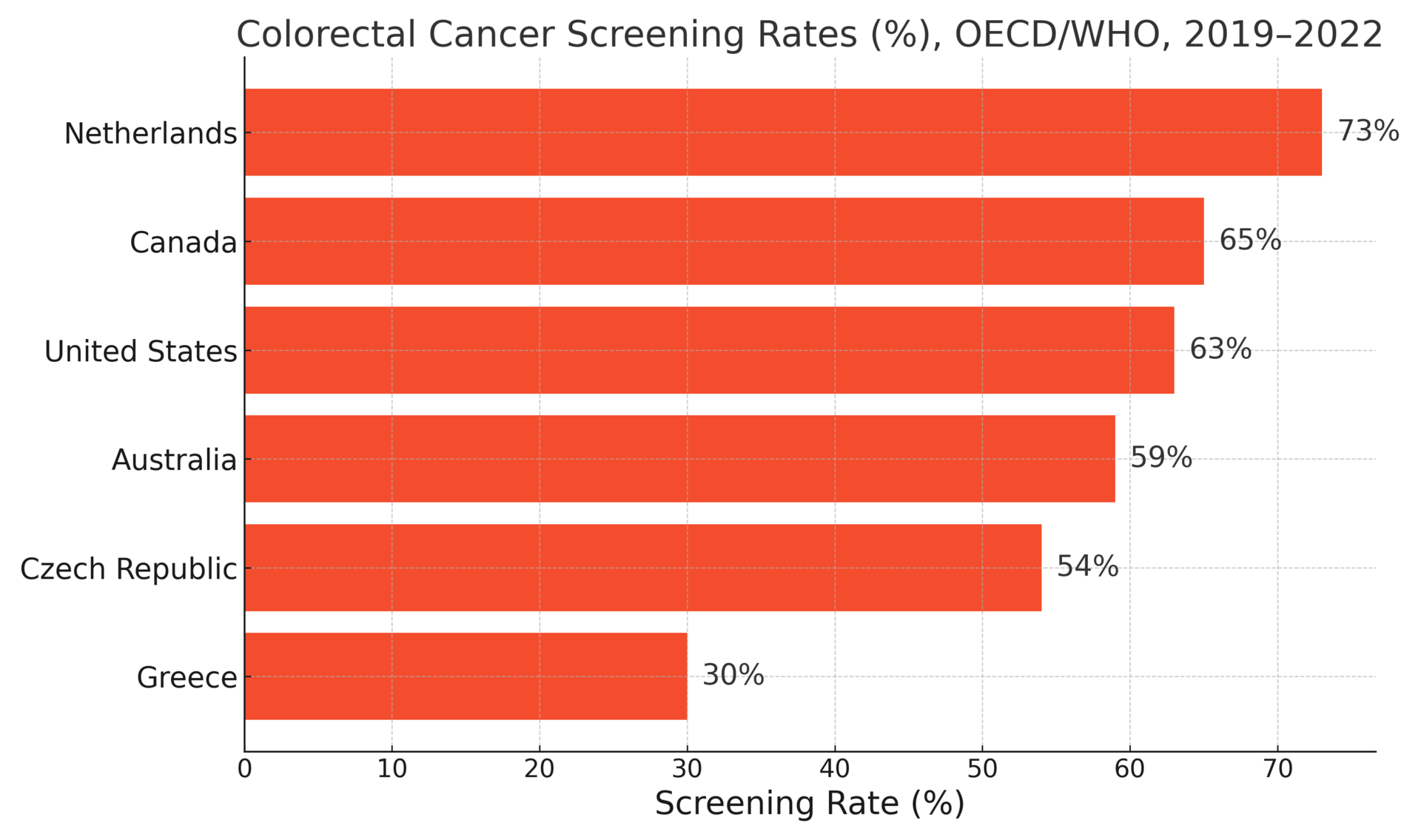
In the U.S., preventive healthcare depends heavily on your zip code and insurance plan. Federal policies (like the ACA) have made many screenings free, but access, awareness, and participation remain wildly inconsistent.
Some states lead in innovation—offering free lung scans to ex-smokers, or using predictive AI to flag high-risk patients—but others lag behind.
Why it’s complicated:
World-class diagnostic technology
Major disparities in access, education, and income
Underutilization of free screening services
📉 Sobering fact: Only 8% of U.S. adults receive all the preventive services recommended for their age and gender.
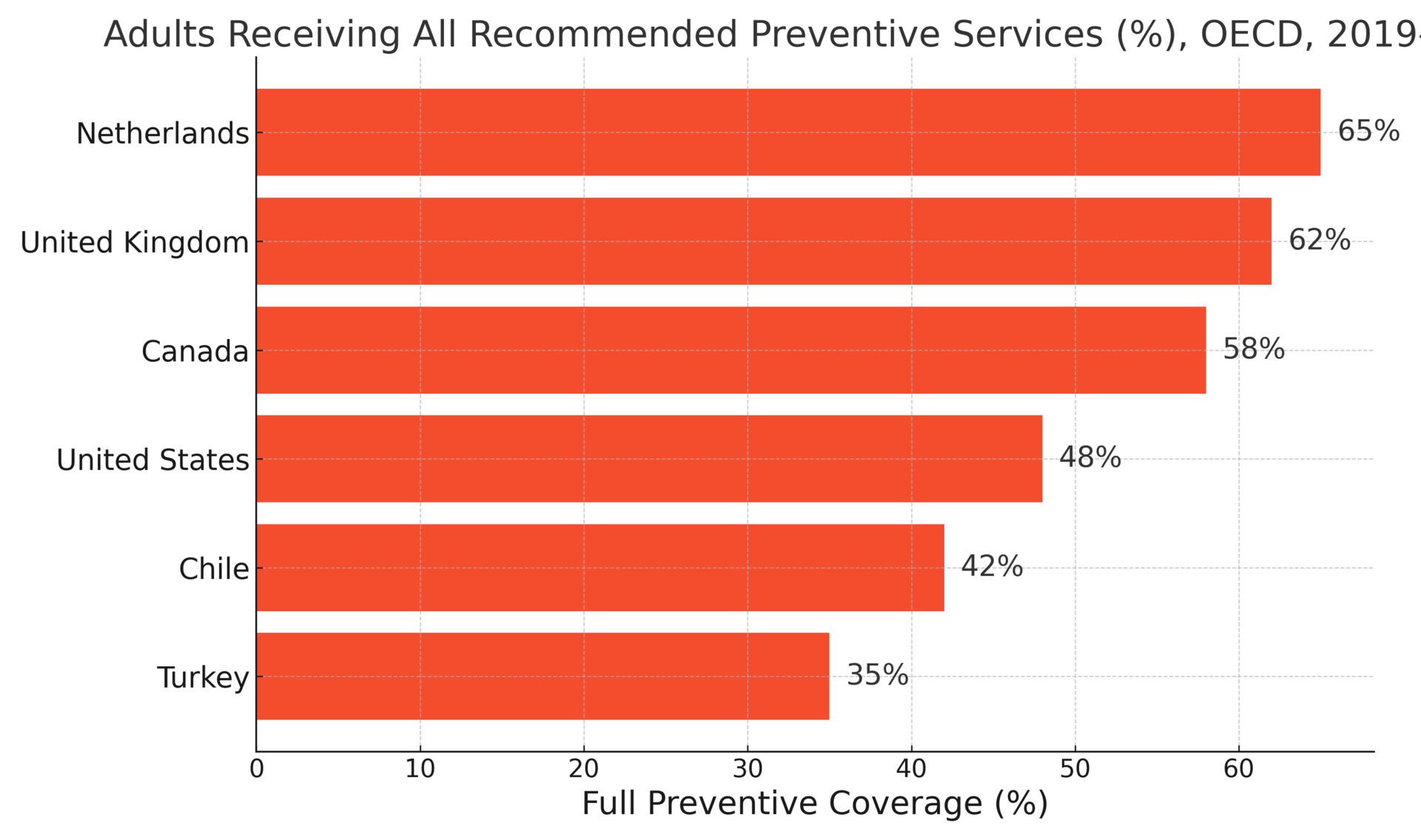
Prevention works—when systems, culture, and action align. It’s not just about free tests. It’s about catching disease before it catches you.
Whether you're eyeing retirement abroad or just want more healthy years, knowing where prevention thrives could be the smartest decision you make.
📍 Your move? Check your country’s offerings—and book that overdue exam 😉
Warm regards,
Shane Fulmer
Founder, WorldPopulationReview.com
P.S. Want to sponsor this newsletter? Reach 127,000+ global-minded readers — click here!

